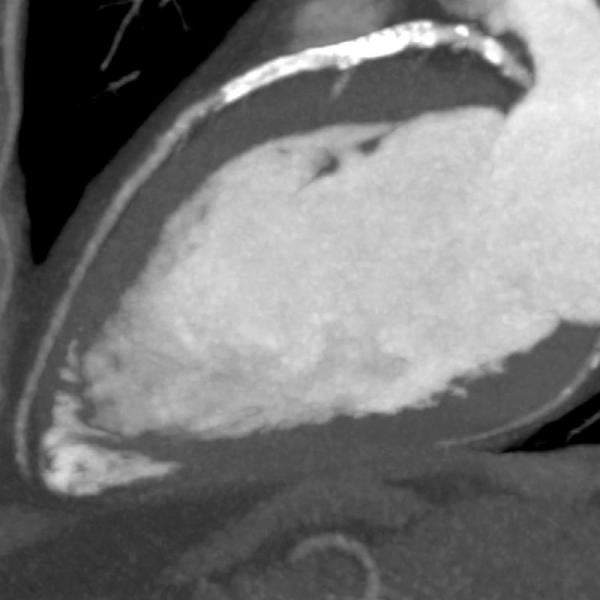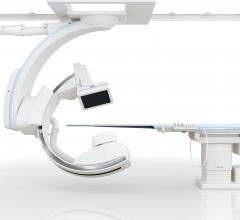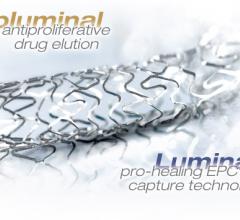Bluegrass Vascular Technologies closed $4.5 million in Series A financing, that will allow the company to obtain CE mark for the Surfacer Inside-Out Access Catheter System.
At the Transcatheter Cardiovascular Therapeutics (TCT) 2014 meeting Sept. 13-17, Toshiba will display newer features offered on its Infinix cardiovascular X-ray system to improve diagnostic accuracy and patient safety.
August 18, 2014 — Two Mount Sinai research studies in the August issue of the Journal of the American College of Cardiology (ACC): Cardiovascular Imaging show the potential of using tele-robotic medicine when diagnosing heart failure patients.
Cardiac PET/CT represents a major advancement in cardiovascular diagnostics, offering significant clinical and ...
A clinical trial being conducted at Mission Health on a special catheter could one day help people with a persistent heart condition that does not respond to medication.
Polidocanol injectable foam (Varithena), the only U.S. Food and Drug Administration (FDA)-approved foam for the treatment of incompetent great saphenous veins (GSV), accessory saphenous veins and visible varicosities of the GSV system both above and below the knee.

The healthcare industry is becoming more mobile and efficient than ever before thanks to the adoption of technologies such as electronic health records (EHR) and electronic sharing, storing and accessing of medical data. These advances have all helped to give patients a more dynamic and comprehensive healthcare experience. They have also helped empower patients to take control of their own healthcare history and information.
SPONSORED CONTENT — Studycast is a comprehensive imaging workflow system that allows healthcare professionals to work ...
OrbusNeich announced first patient enrollment in the Randomized Evaluation of short-term Dual anti platelet therapy in patients with acute coronary syndrome treated with the Combo Dual Therapy StEnt (REDUCE) Study.
The Healthcare Accreditation Colloquium announced that Texas Children's Hospital has earned the designation of Accredited Pediatric Heart Failure Institute following 12 months of work and an extensive onsite review.
August 15, 2014 — The National Institutes of Health (NIH) has launched the NIH 3-D Print Exchange, a public website that enables users to share, download and edit 3-D print files related to health and science. These files can be used, for example, to print custom laboratory equipment and models of bacteria and human anatomy.
Providing exceptional cardiovascular care for patients to achieve the best possible outcomes is the number one goal for ...
August 15, 2014 — Mardil Medical announced earlier this year the first-in-human implants using the VenTouch ventricular reshaping device performed by a surgical team at the Institut Jantung Negara (IJN) National Heart Institute in Kuala Lumpur, Malaysia. This novel, investigational device was implanted in two patients with severe functional mitral valve regurgitation (FMR), which was reduced to only trace amounts after implantation. The patients are part of a multicenter, global clinical study.
August 15, 2014 — Zoll Medical Corp. announced its Japanese subsidiary, Asahi Kasei Zoll Medical (AZM), has received Shonin approval from the Japanese Ministry of Health, Labour and Welfare to enter the Japanese market with its R Series monitor/defibrillator.
August 15, 2014 — Marking the 30th anniversary of the publication of their first joint guidelines for the diagnosis and treatment of heart disease, the American College of Cardiology (ACC) and the American Heart Association (AHA) published an extensive review of the process and methodology for evaluating cardiovascular research and writing practice guidelines for clinicians.
Cardiac positron emission tomography (PET) is growing in popularity among cardiologists because it provides the ability ...

August 14, 2014 — Toshiba Medical Systems Europe will introduce the SURE Subtraction Coronary software at the 2014 European Society of Cardiology (ESC) Congress in Barcelona, to be held Aug. 30 to Sept. 3.
SunTech Medical acquired King’s College London’s central blood pressure technology as well as the assets of Centron Diagnostics Ltd., including the clinically-validated cBP301 Central Blood Pressure Monitor.
August 14, 2014 — New data from the Medtronic Inc. Adaptive CRT trial show a 61 percent (p=0.01) lower risk of atrial ...

 August 19, 2014
August 19, 2014












